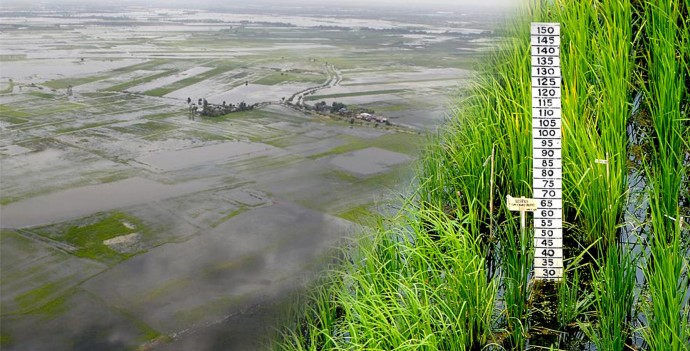- About Us
-
Who we are
-
- Publications
-
- ADPC Academy
-
MediaADPC'S NEWS
Inspiring climate-resilient agricultural through smart interventions Inspiring climate-resilient agricultural through smart interventions
15 Apr 2020
Bangkok, Thailand

Climate change is inevitable and its impacts remain uncertain to the over 2.2 billion people across Asia whose livelihoods depend on agriculture. Crops and livestock are burdened with too much or too little water due to climate induced natural hazards, and the frequency of extreme weather events in the region continues to rise.
ADPC publishes its report on “Climate Smart Disaster Risk Reduction Interventions in Agriculture Sector - Flood Hazard”. The report explores lessons learned, future priorities for climate-adaptive agricultural practices and local initiatives in Nepal, Sri Lanka and Thailand (each with distinct geographical settings in Asia).
Notable findings include the long-term benefits of flood early warning systems in building community resilience, the combination of environmental degradation and socio-economic issues that increase a region’s vulnerability to disaster impacts, and the critical importance of implementing sustainable land-use planning and water resource management.
The report also calls on national authorities to enhance and mainstream risk knowledge for public use, ensure data is constantly updated on climate loss and damage, communicate effectively with persons and communities at risk, and improve their response capabilities to minimize future impacts on the agricultural sector.
The report is part of the ADPC’s “Developing Climate Inclusive Potential Loss and Damage Assessment Methodology for Flood Hazards” project being Implemented in collaboration with Deakin University, Australia, Department of Meteorology, Government of Sri Lanka and The Small Earth Nepal, funded by the Asia Pacific Network for Global Change Research in Japan.
Latest NewsRelated Trainings
-